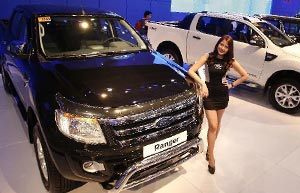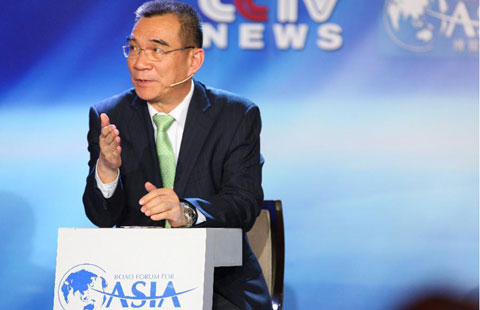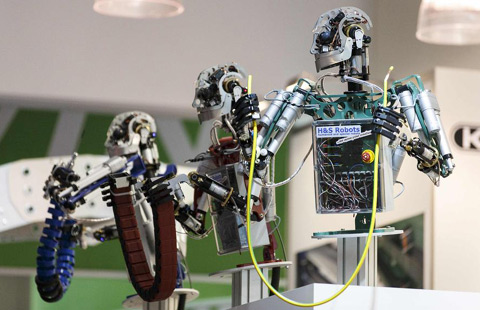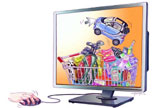Daimler 'smart' plan to help ease urban traffic congestion
By Li Fangfang (China Daily) Updated: 2014-02-10 07:21
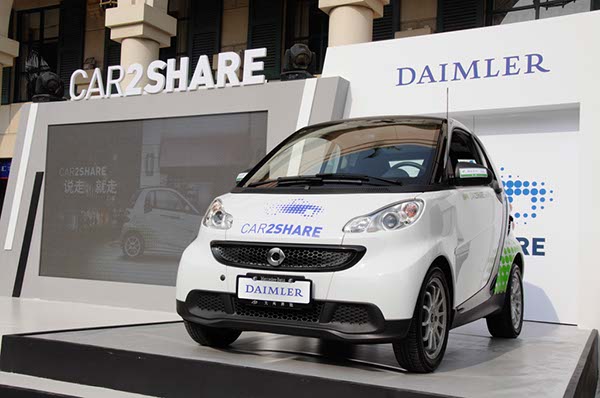 First produced in 1998, the Daimler smart is now sold in 46 countries, with Germany, Italy and China as its largest markets. The auto giant is now offering a car-sharing program using the micro-car, which it says offers a vision of future urban mobility. [Provided to China Daily] |
A corporate car-sharing program by German automaker Daimler AG is providing one answer to the increasing traffic congestion in the urban areas of China.
Named car2share, the program tailored to China recently began in Shenzhen, Guangdong province.
In the initial phase, a fleet of 30 smart fortwo vehicles is exclusively available for use by the staff at Tencent Holdings, one of the nation's biggest and most successful Internet companies.
Some 10,000 Tencent employees are eligible to use the smart fleet for both business and personal trips, according to Daimler Greater China.
'Forward looking'
"As a forward-looking concept, our car2share pilot project provides a flexible, convenient and environmentally friendly approach to urban mobility in China," said Hubertus Troska, Daimler's management board member and chairman and CEO of Daimler Greater China.
"We are the first automotive company to offer a commercialized corporate car-sharing program in China. It has already proven successful in many other countries."
Daimler plans to expand the program to other cities in China using various car models, according to the company.
Designed for densely developed cities with high concentrations of office buildings, the corporate car-sharing program was conceived by Business Innovation, Daimler's think tank for creative business models. It offers both online booking and at-location pickup.
In Shenzhen, after registration via corporate email, a car-sharing member can book the vehicle online, pick up the car at Tencent's parking lot, and simply drive away for a few hours of business meetings, a night out with friends or a weekend getaway. Once back at work, the car is returned to the same parking lot.
Payment is completed on return using Wechat Pay, a part of Tencent's wildly popular mobile messaging program, by scanning a uniquely generated quick-response code.
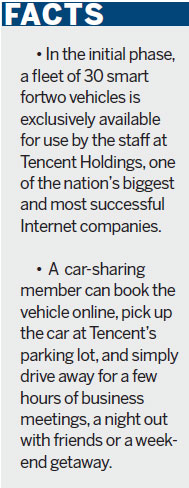
Prices are more competitive than taxis and based on a simple and transparent pricing system that includes fueling by onsite service staff. Tencent's employees are charged on an hourly rate and favorable overnight, weekend and even longer-term pricing.
Daimler also offers safe driving training for first-time users.
Successful operations
The car2share is a Chinese version of Daimler's successful car2go program in European and North American cities, according to the company.
Offering one-way point-to-point rentals, Daimler said it pioneered the service in Ulm, Germany in 2008. It was developed by one of the carmaker's internal business innovation units and was first tested by employees of the company.
By October last year, car2go had more than 9,000 vehicles in operation serving 25 cities in eight countries worldwide with more than 500,000 customers, according to Daimler.
With increasing oil prices, higher traffic volumes, environmental challenges in urban areas and the growing need for individual mobility, Daimler said the car-sharing program is a needed response for sensible urban mobility.
According to the company, the car2go business model is similar in all markets, although rates vary by location. The company charges a per-minute rate, with discounted fixed rates for hourly and daily usage also available and applied automatically.
The rates are all-inclusive and cover rental, fuel, insurance, parking and maintenance. A nominal annual fee is sometimes also charged.
In most markets, car2go vehicles can park in either specially designated parking spots or in standard parking areas with a special permits from local municipalities.
According to Daimler, when the first smart was delivered in 1998, the two-seat micro-car also carried with it a vision of mobility in the 21st century - to address traffic problems in large urban areas.
The smart is now sold in 46 countries. Alongside Germany and Italy, China is one of its main markets, according to Daimler.
- Premier Li meets with Timor Leste's Prime Minister
- China encourages development of private healthcare
- Lufthansa Cargo strengthens its presence in China
- China battles for rags-to-riches stories
- Cars, models at 10th Manila Intl Auto Show
- Jack Ma to acquire 20% of Wasu Media
- XP's demise helps Chinese IT developers
- GM planning lower-priced version of 2016 Chevy Volt

